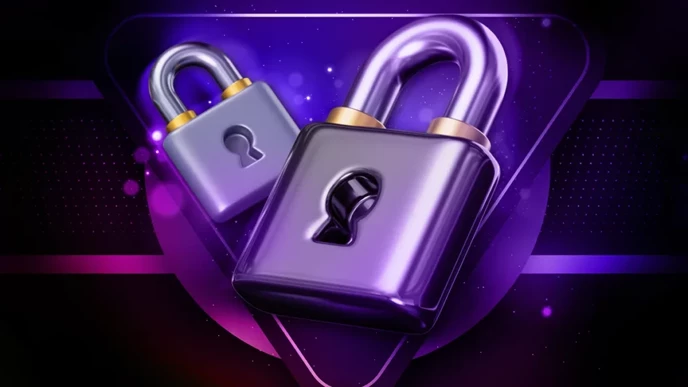What are Secured Creditors, and How Do They Relate to Unsecured Creditors

When do I get my money back?!
This is a question lots of people ask themselves after their favorite cryptocurrency exchange declares for bankruptcy.
When FTX filed for bankruptcy, it still owed over $3 billion USD to other entities.
So it begs the question… if there still is money, who gets paid back first?
What are Secured Creditors?
Secured creditors are creditors who have a security interest in a specific asset or property of the borrower, which serves as collateral for the debt.
If the borrower defaults on the loan, the secured creditor has the right to seize and sell the collateral to recover the debt.
This provides the creditor with a higher level of protection compared to unsecured creditors, who do not have any specific collateral to back up the debt.
In the unfortunate event of a default or a bankruptcy, a secured lender ranks high in the hierarchy of creditors.
A lien or other piece of collateral offsets some of the risk that the creditor shoulders in case the borrower is unable to make payments and defaults on a loan.
If the debtor defaults, secured creditors can direct the proceeds from the sale of the property, in which they have an interest thanks to the lien, to cover any losses.
There are other potential players in the creditor universe:
- A preferred creditor is an employee of a debtor business that has entered bankruptcy protection who has a right to claim their income, commissions, and other benefits. An unsecured creditor comes behind the preferred creditor in rank for the distribution of assets in a bankruptcy.
- A secured debt in a bankruptcy situation is backed by a piece of property, which the lender can seize in the event of a default.
Secured Creditor Examples
A secured creditor could be a financial institution or another lender that has a right to a borrower’s asset if there is a default or bankruptcy.
There are plenty of examples of secured creditors in the corporate landscape as well as traditional and alternative finance.
- Canadian mining company Crystallex International Corp is a secured creditor of Venezuela. Crystallex’s claim against the Latin American nation is an eye-popping $1 billion USD over a mining mishap.
U.S.-based Stored Solar and most of its subsidiaries filed for Chapter 11 bankruptcy in November 2022 after falling millions of dollars into debt that it couldn’t pay.
The court green-lighted the sale of the company’s assets, and secured creditors were first in line to be paid from the proceeds.
Stored Solar listed close to a dozen secured creditors in its bankruptcy filing and hundreds of unsecured creditors.
What is an Unsecured Creditor?
An unsecured creditor is a creditor who has not been granted a security interest in any specific asset of the borrower.
Instead, they are relying on the borrower's general creditworthiness and ability to repay the debt.
If the borrower defaults on the loan, the unsecured creditor must compete with other unsecured creditors to recover their debt, and may only receive payment if there are sufficient assets remaining after secured creditors have been satisfied.
When you see Unsecured creditor, read you have no collateral, higher risk, and you get to file a lawsuit to get in the back of the line.
Large players misjudge this risk also.
The more you know... pic.twitter.com/DvHYfGwHae
— WaLLrus (@WaLLrusOfficial) February 4, 2023
Considering that secured creditors are first in line if things go awry, the unsecured creditor has to rely on the debtor voluntarily repaying their debt.
Otherwise, the unsecured creditor could sue and use the proceeds from any potential judgment to recoup losses.
Or, if the debtor files for bankruptcy protection, the unsecured creditor might be entitled to whatever is left after secured creditors are repaid.
Cryptocurrency investors typically are unaware that when they buy crypto on an exchange, they do not actually hold the crypto.
Rather, it goes on the liabilities side of the exchange's balance sheet.
Which means it is an unsecured debt that they owe YOU. If they go bankrupt, you are likely LAST IN LINE to get repaid.
Unsecured Creditor Examples
There are plenty of examples of unsecured creditors and how they fare when things take a turn for the worst. Let’s look at a couple of them.
- Digital asset exchange FTX rocked the cryptocurrency industry when it filed for bankruptcy protection in November 2022. The company reportedly owes several dozen unsecured creditors a combined $3 billion-plus. The largest of those claims fall between $21 million and $225 million USD.
- Alameda Research, the trading arm of FTX, also filed for bankruptcy protection. Alameda Research also has some burnt unsecured creditors, in this case including Jimmy Buffett’s hospitality brand Margaritaville, which as one of its largest unsecured creditors is owed over $55,000.
Secured Creditor vs. Unsecured Creditor
When a borrower defaults on a loan, not all creditors are treated the same.
Whether a creditor is secured or unsecured makes all the difference.
Secured creditors have the right to repossess assets that are acting as collateral for a loan.
They can then use proceeds for the sale of any assets to cover losses.
Basically it comes down to risk. Unsecured lenders do not have this luxury.
Basically, it comes down to one thing: risk.
Secured creditors carry less risk because there is an asset for them to seize, while unsecured creditors inherit greater risk since they have less recourse if there’s a default.
It is also common for secured debts to have lower interest rates attached vs. unsecured debts as a function of the amount of risk that the lender inherits.
Let’s say a debtor defaults on a loan.
If an unsecured creditor will see any of their funds, it will depend on either a.) the result of litigation or b.) a bankruptcy filing.
But first the unsecured creditor will attempt to collect payment from the debtor and in the U.S. will report the balance to the major credit bureaus.
If all else fails, they may file a complaint with the courts and could decide to offload the balance to a collection agency.
Implications for Creditors of FTX, BlockFi, Celsius
While the cryptocurrency industry is still a nascent market, it has seen its share of failures. In 2022 alone, there has been a wave of bankruptcy filings among centralized players that left market prices reeling and took a toll on investor confidence.
The ringleaders in this three-ring circus have been the centralized exchanges FTX, BlockFi, and Celsius. Let’s take a look at them.
FTX
Sam Bankman-Fried, the mastermind behind the colossal failure of FTX, managed to saddle the balance sheet with billions of dollars in debt.
Hot off the FTX Presses:
Find redacted 115-page FTX Creditor List (33% US based; 9,693,985 Customer Names redacted) at:https://t.co/5RQougthxk
Find 106 FTX-related Bankruptcies List at:https://t.co/GcrO4K500u
FTX claims to owe $3B to the top 50 of its estimated 1M creditors. pic.twitter.com/a0kFlXhSNy
— John Reed Stark (@JohnReedStark) January 26, 2023
As alluded to, FTX has many unsecured creditors, among which are investors who are low on the priority list for recouping any losses.
According to Bitcoin.com analyst Dylan LeClair, investors could expect to receive $0.10-$0.30 on the dollar if they’re lucky.
BlockFi
This centralized lender was a victim of its exposure to FTX and Alameda.
On the heels of its bankruptcy filing, BlockFi sued FTX, demanding Bankman-Fried return collateral that it is owed, comprising a 7.6% position in online investing app Robinhood, according to reports.
BlockFi is on the hook for debts it owes to over 100,000 creditors, the largest of which is Ankura Trust, which is owed close to $730 million USD.
In this tangled web, BlockFi owes FTX $275 million USD.
Celsius Network
After filing for bankruptcy, Celsius is in some hot water over its debts to unsecured creditors.
The company is the target of several investigations by regulators, including by the U.S. CFTC, FTC and SEC, which are probing the company on behalf of an creditor committee.
Celsius is on the hook for $4.7 billion USD from its users alone, who are considered unsecured creditors.
The company reportedly has $5.5 billion USD in total liabilities, and among its creditors is Alameda Research.
The Bottom Line
If you have to ask if you’re a secured creditor, you're probably not.
When you deposit money on a centralized exchange, you are running the risk of never getting it back at all.
The best practice is to learn self-custody and only use centralized exchanges as an on-ramp and off-ramp to convert your dollars into crypto and vice versa.
Join The Leading Crypto Channel
JOINDisclaimer:Please note that nothing on this website constitutes financial advice. Whilst every effort has been made to ensure that the information provided on this website is accurate, individuals must not rely on this information to make a financial or investment decision. Before making any decision, we strongly recommend you consult a qualified professional who should take into account your specific investment objectives, financial situation and individual needs.

Gerelyn
Gerelyn is a financial journalist who has been covering Wall Street for more than 20 years. After reporting for some of the top trade publications on investment banking, infrastructure and retirement, she was drawn to decentralization and shifted her coverage to the blockchain and cryptocurrency space in mid-2017. Since then, she has contributed to several major Bitcoin, Blockchain, and DeFi news sites, and has also written a children’s book.

Development
Knowledge
Subscribe To Newsletter
Stay up-to-date with all the latest news about
Liquid Loans, Fetch Oracle and more.
Copyright © 2024 Crave Management.
All Rights Reserved.

The LL Librarian
Your Genius Liquid Loans Knowledge Assistant




